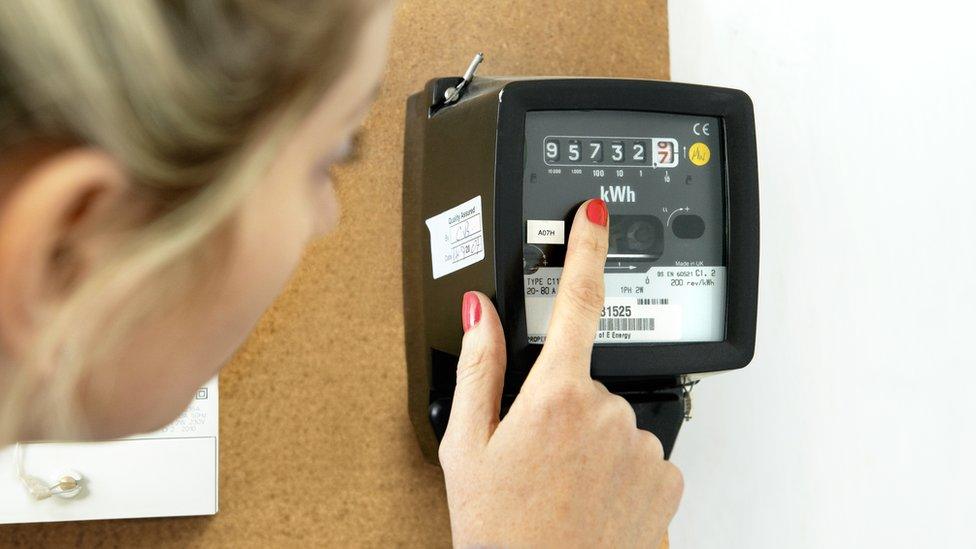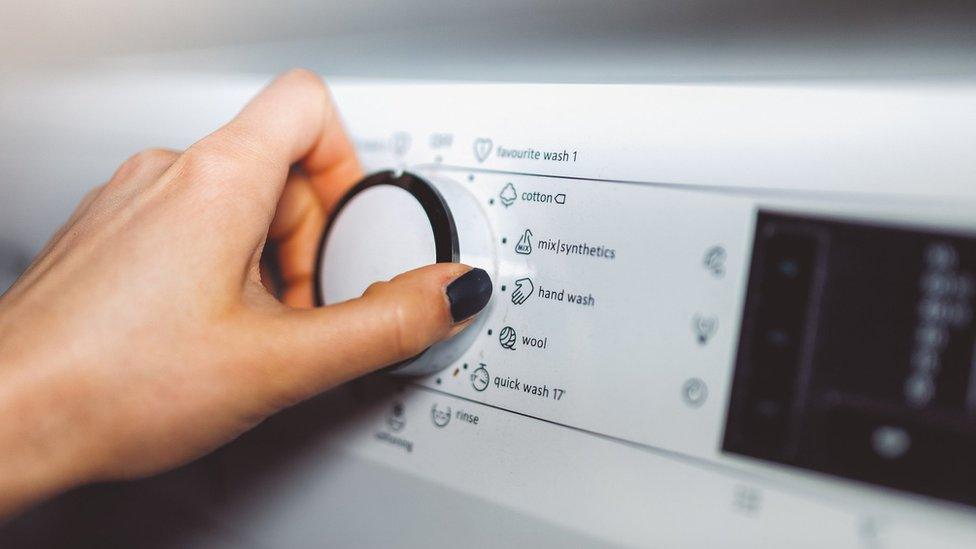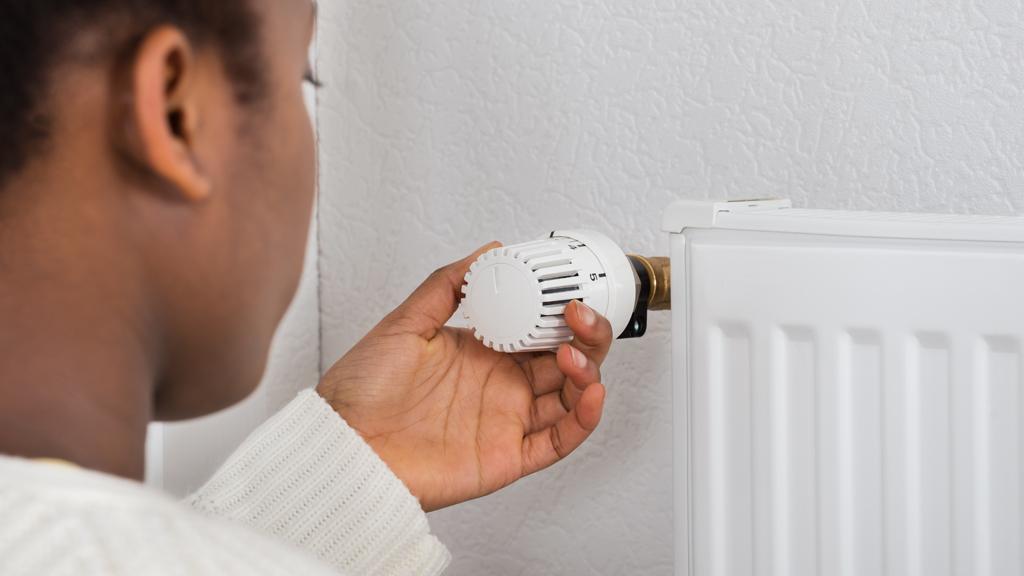Energy bills: Millions set to see 'big savings' as price cap lowered
- Published
- comments

Energy bills will fall by an average of £84 in October for millions after the energy regulator lowered the price cap due to cheaper gas wholesale prices.
Ofgem has cut the default price cap to £1,042, its lowest level since the cap was introduced in January 2019.
The pre-payment meter cap will fall by an average of £95 to £1,070.
Ofgem said the changes would mean "big savings" for around 11 million households on default tariffs and four million on prepayment meters.
The regulator said the reduction was due to a sharp decrease in wholesale gas prices since the cap was last updated in February.
But it warned that the cap was likely to rise in April as wholesale prices have started to recover since hitting 20-year lows in the spring.
Shop around
"Millions of households, many of whom face financial hardship due to the Covid-19 crisis, will see big savings on their energy bills this winter when the level of the cap is reduced," said Jonathan Brearley, chief executive of Ofgem.
But he said people "can reduce their energy bills further by shopping around for a better deal".
Speaking to BBC Breakfast he advised: "Phone up your supplier and ask them to put you on the best deal they can offer.
"If you can go further and get into the market and switch supplier, that will get you an even better deal than the regulated tariff."
"This reduction in the price cap represents a much-needed financial boost for millions of households, at a time when many people are struggling due to the economic impact of Covid-19 and lockdown," said Ed Dodman, director of regulatory affairs at the Energy Ombudsman.
"Shopping around for a cheaper energy deal is still the best way to save money, particularly for customers on standard variable tariffs, but before switching to a new supplier it's a good idea to check out its customer service credentials.
He said review sites and other online tools give an idea of the quality of service on offer and can help people to make an informed decision when switching.

How to get the best energy deal

by Simon Read, personal finance reporter
The energy price cap limits the amount that anyone on a standard variable tariff or pre-payment meter pays for their heating and lighting.
It limits the price a supplier can charge customers per kWH of electricity and gas, not their total bill which will vary depending on how much energy they use.
But energy users can save hundreds by switching to a lower-priced fixed deal.
All suppliers have fixed-rate deals so the simplest way to save is to contact your existing supplier and asked to be moved to its lowest-priced fixed deal.
But you could probably save more by switching to a rival supplier.
It's simple to switch using an energy comparison site - all you'll need is your postcode, the name of your current supplier, and the name of your current tariff.
Citizens Advice has a useful guide to choosing the right tariff, external.
Ofgem also sets out the steps you should take to switch energy supplier and shop for a better deal, external.

More savings
"This price cap cut is effectively money off what are the most expensive tariffs in the market," said Richard Neudegg, head of regulation at comparison website Uswitch.com.
"Wholesale energy prices plunged in March following Covid-19 lockdown measures, but millions of households who are on standard variable tariffs have yet to see the impact on their energy bills."
He said the change in October represents a seven-month lag since the huge plunge in wholesale prices at the start of the lockdown - "an unavoidable fallout of the price cap system".
"This summer has seen energy deals at their cheapest since 2018, and millions are already benefiting from the lower wholesale prices," he pointed out.
"The news that Ofgem is dropping the price cap by £84 is good news at first glance, but there are more savings to be had if people switch to a fixed tariff now," said Stephen Murray, energy expert at Moneysupermarket.
"Our view on the price cap has always been clear: don't rely on the cap to reduce your bills.
"If you're on an expensive standard variable tariff and want to save hundreds of pounds on your annual bill, switch your energy supplier as soon as you can. It's simple to do and only takes minutes online."
Meanwhile, Ofgem has recommended that the price cap on household energy bills be kept in place beyond this year.
The energy regulator is required to give an annual assessment on the cap based on how competitive the energy market is.
It has recommended that the price cap should remain in place in 2021, as without it customers on default tariffs could be overcharged for their energy, it said.
- Published9 July 2020

- Published7 February 2020
